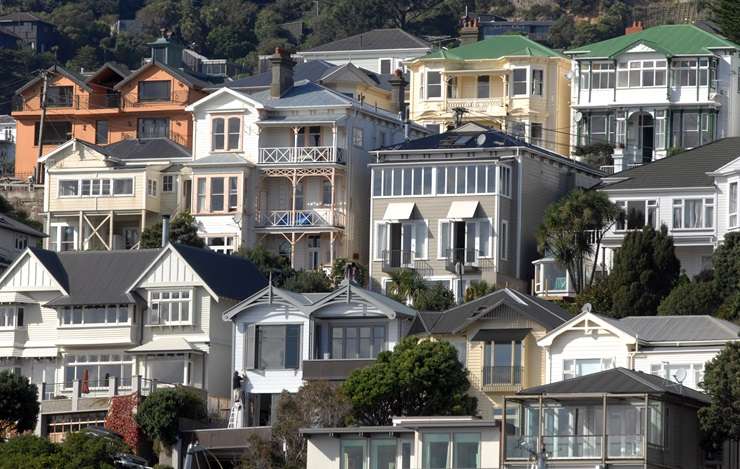- A surge in rental listings has led Property Brokers to incur significant costs due to their rent guarantee.
- David Faulkner advises landlords to reduce rents if properties remain vacant for two to three weeks.
- Rental listings have risen by 30%, but the median rent remains unchanged at $600.
A flood of rental properties has left one of New Zealand’s largest real estate agencies with a hefty rent bill.
Start your property search
David Faulkner, who heads up Property Brokers’ property management arm, said the company’s pledge to cover its clients’ rent if it failed to find a tenant within one month was proving costly in the current market.
Agencies and landlords were scrambling to lock in tenants following a spike in rental listings.
“What we’ve paid out in the last quarter would be equivalent to what we’ve paid out in the last three years,” Faulkner told OneRoof.
“Certainly, what we are seeing is it is taking longer to rent, we are seeing a lot more stock available - it’s basic supply and demand.”

Property Brokers’ David Faulkner has dropped the rent of his own investment property. Photo / Supplied
In most cases, rents had plateaued, but landlords struggling to find the right tenant were considering discounts. Faulkner said he had just dropped the rent of his property in Wellington by $40 after the tenant moved out.
“I could see what was happening. I said, ‘Look, drop it. Get a good tenant in’.”
Faulkner was now advising other landlords to do the same if their properties failed to attract any interest after two to three weeks on the market. “My advice is to make sure your property is well presented, that there’s no pending maintenance, and it’s Healthy Homes-compliant.”
According to analysis by OneRoof data partner Valocity, rental listings have risen by 30% annually, but the median rent remains unchanged at $600.
Discover more:
- Investor snaps up 'no cost' apartment within 20mins of reading OneRoof article
- Kiwi nurse selling his 'last resort' bach in West Coast for $97,000
- Tony Alexander: What the latest OCR cut means for the housing market
Property bosses cited various reasons for the rise in listings, including the return of interest deductibility for investment properties and lower interest rates, while highlighting the drop in migration as a reason for fewer tenants.
Faulkner predicted rental growth would be flat over the next two to three years. “I actually think it’s more of a positive than a negative because tenants will hopefully have a bit more disposable income, and as landlords come off these interest rates, it will be easier for them,” he said.
Ray White head of property management Zac Snelling said demand had dropped. “We are seeing less demand, more available properties, and more options for tenants,” he said.
Some tenants were applying for multiple properties and leaving the property manager or the landlord hanging until they got the rental they wanted.

Wellington has bucked the trend and is the most expensive city to rent. Photo / Getty Images

Professor Graham Squires says rents have flatlined for the first time since the Covid pandemic. Photo / Supplied
He urged property managers to do everything possible to make their stock stand out, such as allowing pets or offering enticements such as half a week’s free rent or grocery vouchers. He also advised against hiking rents.
“If you’ve got a good quality tenant, just be thankful. Don’t rock the boat too much because there’s nothing worth more than a good quality tenant.”
Harcourts Hamilton Rentals managing director Melanie Rouse said the switch from a landlord’s market to a tenant’s market happened almost overnight. Last December, the agency went from 30 listings to 80 within two weeks.
Like many cities, Hamilton has a glut of studio apartments and two-bedroom units available to rent, with rents for the former sliding from about $300 a week to $270.
“Tenants have more choice, so you’ve got to price your property correctly,” she said, noting that it was a completely different market to a year ago when tenants were fighting each other for properties. “We haven’t seen a market like this for at least three years.”
Professor Graham Squires, who teaches property studies at Lincoln University, said this was the first time rents had properly flatlined since the start of the Covid pandemic.
While the nationwide median rent was $600, there was some fluctuation in regions, with rents in some towns starting to catch up to Auckland. It was also a bit of a surprise that Wellington had the highest median weekly rent at $665.
Squires said he would have expected the loss of public sector jobs to have softened rents, but the opposite had happened. Market factors such as fewer house sales and landlords exiting the city on the back of low yields and low capital gain may have offset the drop in demand elsewhere.
- Click here to find properties for rent















































































